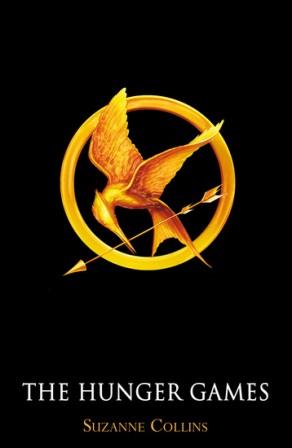
When your job involves recommending books to young people, it’s a good idea to read at least a few of the more popular YA books, which is why I read Suzanne Collins’ ‘The Hunger Games’.
What’s it about?
Sometime in a dystopian future, North America has been divided into twelve districts and the Capitol. As a punishment for attempted rebellion 74 years previously, each district is required annually to select two teenage “tributes” – a boy and a girl – to send to the Capitol to participate in the “hunger games”, a live reality TV show in which you kill or be killed, win or die. When 16 year old Katniss Everdene volunteers to take her sister’s place, she expects to die, but that would be too simple, and Katniss is used to surviving.
What’s it like?
Mildly entertaining. I found the premise and plot sufficiently interesting to keep me reading throughout; I never became bored or irritated, but I wasn’t reading it every moment to find out what happened next.
It’s not particularly original – of course our heroine has excellent survival skills and the love of at least two young men – but the plot ticks along nicely and the characters act in ways which are consistent throughout.
Surely the key issue is not the originality, or otherwise, of the plot, but the enjoyment to be found in the reading?
More problematically, Collins has been accused of serious plagiarism from Koushun Takami’s ‘Battale Royale’. While I haven’t read Takami’s book, a quick trip to Wikipedia suggests that there are a number of similarities, certainly enough to stir up the critics. However, as I’ve already stated, this book isn’t stunningly original – but nor is ‘Battale Royale’.
- Oppressive government divides country into competing, isolated factions. Tick.
- Most people are hungry and live in poverty, ruled over by a thoughtlessly cruel elite. Tick.
- Potential rebellion is quashed by requiring sacrifices which remind the people how under-the-heel they are. Tick.
- Someone rebels anyway. Tick.
Surely the key issue is not the originality, or otherwise, of the plot, but the enjoyment to be found in the reading?
Despite the rather brutal deaths of many of the characters, ‘The Hunger Games’ is easy to read. It’s never so gory you have to put it down and settle your nerves – or at least, I never had to do that, and I’m very squeamish. Some critics have expressed concern or even outrage that this is a book aimed at young people, but I would argue that they are likely to see far worse violence, accompanied by less moral consideration, every day on their television screens. While Katniss doesn’t stand above the killing, she doesn’t embrace it. In fact, at one point she clumsily reframes her thoughts when she thinks of one death as ‘murder’ – the Capitol wouldn’t like that at all – but it’s clear to even relatively young readers how the matter should be perceived.
This is possible because the first-person narration means that it is Katniss’ viewpoint we follow, and are limited to. This is useful for creating a bit of suspense (Katniss doesn’t know what the other tributes are up to when they’re out of her sight, and nor do we) but is also essential for the developing romance with fellow district 12 tribute Peeta Mellark. Katniss can hunt, kill and identify poisonous berries, but she can’t work out Peeta’s true feelings. This can get a little frustrating, as I do feel that they are very obvious to the reader, but perhaps that is the influence of the incurable romantic in me, or a result of me being a good decade (alright, decade and a half) older than the intended reader.
Katniss can hunt, kill and identify poisonous berries, but she can’t work out Peeta’s true feelings.
Perhaps more problematically, Katniss’ position as narrator necessarily drains away a little of the potential tension. It’s very rare for the main character in a book to be killed off anyway, but extremely unlikely when they are the narrator. Of course, given the hype there’s been over the whole series, I don’t imagine many potential readers could be in any doubt of Katniss’ survival anyway, so it’s really a moot point.
Collins has a TV background and it shows in her writing. I imagine this was easy to adapt for the 2012 film. Television is also a big part of the story, and the reader is constantly reminded of the tributes’ need to take audience response into account. This is possibly what makes the book fairly interesting; although we never see the watchers watching, Katniss is constantly aware of them and so the reader is privy to her attempts to manipulate her unavoidable audience.
Final thoughts
While I did enjoy reading it, ‘The Hunger Games’ really is only reasonably interesting; I have read the book twice and watched the film once, and it took me most of the book on the second reading to decide that yes, I definitely had read it before. The premise is memorable, the specific details less so.
The praise on the jacket cover gives some idea of potential readership. Stephanie Meyer of ‘Twilight’ fame describes the book as “amazing” while Stephen King claims to have been in “constant suspense”. Personally, I find Meyer’s writing annoyingly repetitive and King’s books in need of abridgement, but if you like these two authors you may well enjoy this more than I did.